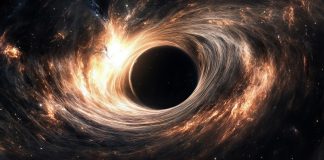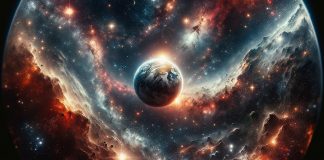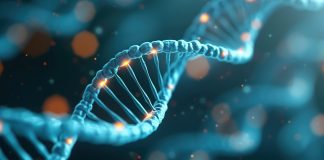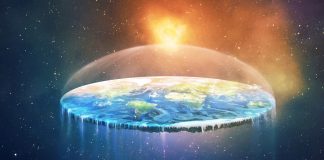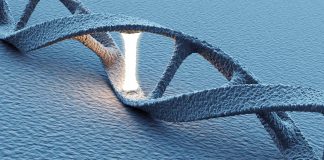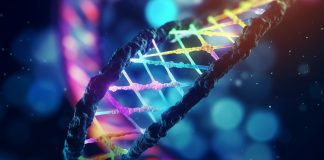Evolution before our very eyes | Part 2
Bacteria are becoming increasingly resistant to antibiotics; some butterflies and fish are developing new colours for better camouflage; and a series of laboratory experiments have revealed small but significant changes in various microorganisms. Are these phenomena conclusive evidence of evolution unfolding before our eyes?
Evolution before our very eyes | Part 1
Bacteria are becoming increasingly resistant to antibiotics; some butterflies and fish are developing new colours for better camouflage; and a series of laboratory experiments have revealed small but significant changes in various microorganisms. Are these phenomena conclusive evidence of evolution unfolding before our eyes?
Evolution and probability
At first glance, the idea that life could have emerged spontaneously seems to imply insurmountable probabilities. Indeed, simple yet accurate mathematical modelling reveals infinitesimal probabilities, regardless of the length of time available. So, how is the theory of evolution compatible with these mathematical arguments? Is the spontaneous emergence of life the only improbable aspect of the theory?
The evolution of the eye
The eye's intricate structure has long been a focal point in the creationism vs evolutionism debate, serving as a key example in the argument of irreducible complexity. More recently, methods of simulating the evolution of the eye have emerged, which claim to provide significant support for Darwinism. Who is right?
The driving forces of evolution
Even those least familiar with evolutionary theory know that it involves a powerful driving force: natural selection. However, as we delve deeper into the theory, we find that things haven't been that simple for a long time. This is because we no longer consider natural selection the sole engine of evolution, and from a certain point of view, not even the most powerful...
God and the onion test
Humans have only a fifth of the genetic material of an onion, and slightly more DNA than a mouse. Why would the Creator of life use five times more genetic information for an onion than for a human? And why would He create humans to be only slightly more genetically complex than mice? Aren't long and aimless evolutionary processes a better explanation for...
Why do some people believe the earth is flat?
Around 10% of Americans and 7% of Brazilians believe that the Earth is flat, that the moon landing was a hoax, and that those vaccinated against Covid-19 unknowingly received a microchip along with the vaccine. Several more percent remain uncertain about the veracity of official information.
Non-functional DNA: the playground of evolution?
It is commonly assumed that at least 96% of the genome of a multicellular organism has no functional role. A junk-dominated genome is the ideal place for evolution to randomly explore new functions and characteristics of the species. After all, who would ever think that a wise and all-knowing Creator would use 96% informational junk to define a human being or a mollusc?
A lesson in natural sciences
The red horizons are shattered. But much more subtle dangers loom for the present and the future. In most Christian countries, theology has declared a truce with evolutionary atheology and has devised a foolish and deadly compromise that is neither atheism nor true Christianity.
The microscope of theology versus the decalogue of science
The Jewish people walked on dry land in the middle of the water, not in the Red Sea, but somewhere in the Nile Delta. This conclusion by researchers from the National Center for Atmospheric Research and the University of Colorado (USA) made headlines on Reuters and the BBC in September 2010.
Gravitational waves and the inflation of certainty
On 17 March 2014, the science and technology blog of the prestigious newspaper The New Yorker announced, "A scientific breakthrough lets us see to the beginning of time". Lawrence M. Krauss, renowned physicist and author of "A Universe From Nothing: Why There is Something Rather than Nothing", commented in his article on the news that went around the world, heralding a landmark moment...
DNA: the language of chance, or of the Creator?
Scientific progress in understanding the DNA molecule and in deciphering the molecular mechanisms by which cells function can only be described as revolutionary. In the first of our "Genetics and Evolution" series of articles we examine the implications of these discoveries for evolutionary and creationist perspectives on the origin of life.
The big picture
Fossil layers seem to be consistent with some independent phylogenetic analyses, radiometric dating methods seem to be consistent with inferences based on the DNA "molecular clock," continental drift over millions of years seems to be consistent with the distribution of species and fossils on Earth... and the examples go on. If the evolution of life is not a real phenomenon, how can we...
The redefinition that conquered the world
For Carl Sagan, renowned astronomer and militant atheist, God's place in the universe was certain: "The cosmos is all that is, or ever was, or ever will be." For Richard Dawkins, exponent of the "new wave" of atheism, true science is necessarily atheistic and materialistic. This paradigm dominates the scientific world today.
Can we simulate evolution?
When a process is thought to be too slow or impractical to test experimentally, simulation science is a valuable tool for testing its validity.












